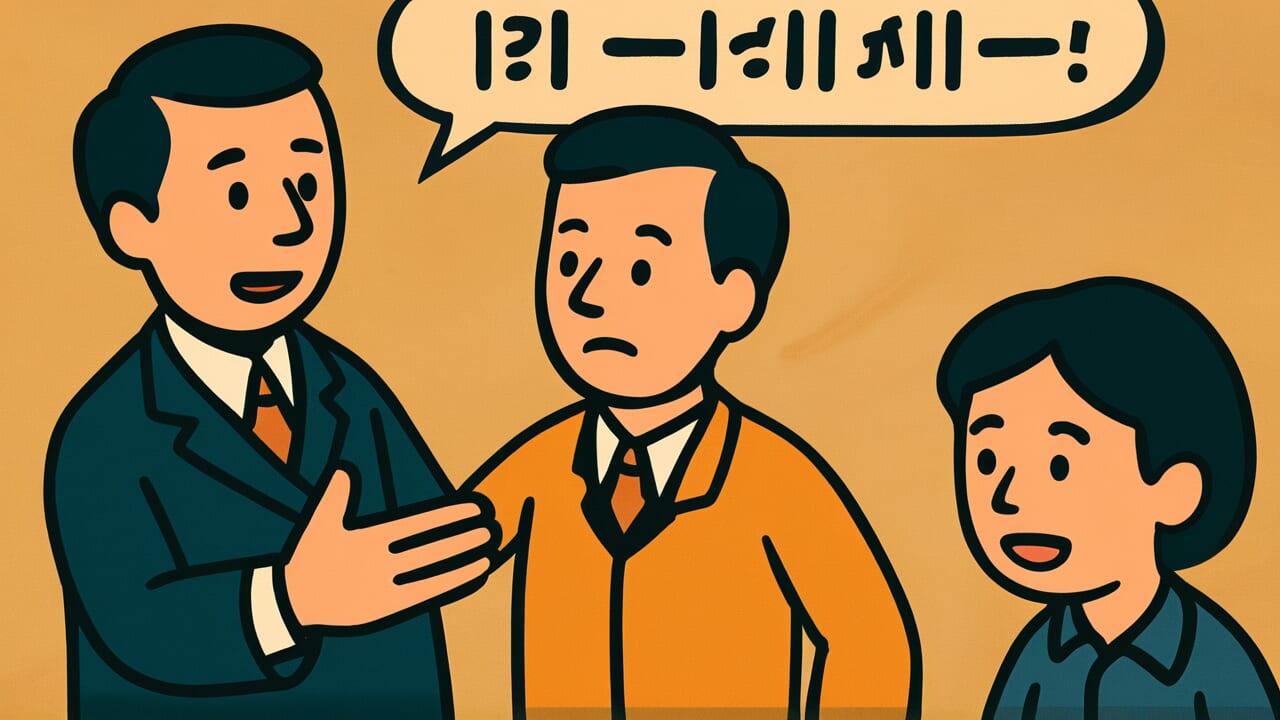How to Read “Do not say there is tomorrow without learning today”
Iu nakare, kyō manabazushite raijitsu ari to
Meaning of “Do not say there is tomorrow without learning today”
This proverb warns against thinking you can skip learning today because there’s always tomorrow. It strongly criticizes the habit of putting off learning.
Everyone tends to think “I’m tired today, so I’ll do it tomorrow” or “I still have time, so later is fine.” But if you waste today doing nothing, you’ll make the same excuse tomorrow.
This proverb sees through this human weakness. It teaches the importance of learning right now, in this very moment.
Even today, you can use this expression when learning is needed. Examples include studying for exams, getting certifications, or acquiring new skills.
It works especially well as advice for people who procrastinate. You can also use it to discipline yourself.
Tomorrow is never guaranteed. Today, when you can learn, is the most certain time you have. This old-fashioned phrase powerfully conveys this truth.
Origin and Etymology
This proverb likely comes from ancient Chinese classics. The leading theory is that it was influenced by educational philosophy found in the “Book of Rites,” a Confucian text.
The expression “iu nakare” is a negative form from classical Chinese. It means “you must not say” and shows a strong warning.
“Raijitsu” in modern Japanese means coming to Japan from abroad. But in classical texts, it simply meant “the coming day” or “tomorrow” and “the future.”
This expression came to Japan and spread through samurai education and temple schools. Education during the Edo period emphasized continuity in learning and daily accumulation.
The idea that one day of laziness leads to irreversible delays was accepted as a spirit that also applied to martial arts training.
Because it uses formal classical Chinese style, it was probably one of the teachings used in academic institutions and domain schools.
Though we rarely hear this old-fashioned phrase today, it has been passed down as wisdom that teaches a sincere attitude toward learning.
Usage Examples
- I was careless thinking I had six months until the exam, but “do not say there is tomorrow without learning today” proved true, and before I knew it, I ran out of time
- I was putting off learning my new job, but I remembered the words “do not say there is tomorrow without learning today” and decided to start today
Universal Wisdom
Humans have a strange quality. We tend to see time as infinite. Especially when young, it feels like tomorrow, the day after, and beyond will continue the same way forever.
That’s why we think if we don’t do it today, we can just do it tomorrow.
But our ancestors deeply understood this human weakness. Tomorrow is never actually promised. You might get sick, your environment might change, or you might lose your motivation to learn.
More importantly, they saw through the essential human psychology. People who postpone today will postpone tomorrow the same way.
This proverb has been passed down for so long because it’s not just about being diligent. It touches on universal truths about the finite nature of time and human laziness.
We all only truly have this present moment. The past cannot be changed, and the future is uncertain.
The moment you want to learn something, today when you can act is the most valuable time. Our ancestors conveyed this obvious but easily forgotten truth to us in dignified words.
When AI Hears This
When you think of learning as compound interest, surprising facts emerge. Bank deposit compound interest works by adding interest to principal, then adding interest to that interest.
Learning has exactly the same structure. Knowledge A learned today deepens your understanding of knowledge B tomorrow. The combination of A and B lets you absorb knowledge C next week at a higher level.
Learning has a multiplication effect.
Let’s look at specific numbers. If you learn one thing each day, simple addition gives you 30 pieces of knowledge in 30 days.
But considering compound effects, day one’s learning increases day two’s comprehension by 1.1 times. When this accumulates, after 30 days there’s about a 17-fold difference.
This follows the same principle as 10 percent annual compound interest.
What’s frightening here is choosing not to learn today. You don’t just lose one day. You lose all the multiplication effects that day would have created.
For example, without the basic knowledge you should have learned today, you can’t understand the applied problems you’ll meet in three months. In one year, you can’t reach the specialized knowledge that builds on those applications.
Losing today’s 1 means simultaneously losing the future’s 100 or 1000.
The power of compound interest explodes exponentially over time. That’s why postponing today’s learning to tomorrow creates exponential opportunity loss.
Lessons for Today
This proverb teaches us modern people the preciousness of now. You might want to learn something right now. A new language, specialized knowledge, hobby skills.
But aren’t you putting it off because you’re busy or tired?
What matters is not aiming for perfection. Even if you can’t get enough time today, even ten minutes or five minutes of touching learning has meaning.
That small step becomes a bridge to tomorrow.
Modern society overflows with information, and there’s infinite things to learn. That’s exactly why the attitude of doing what you can today changes your life greatly.
Reduce your social media time a little and read one page of an interesting book. Listen to a podcast during your commute. The accumulation of such small choices creates who you’ll be in one year.
Tomorrow only exists as an extension of today. Only people who value today can obtain a fulfilling tomorrow.
So why not start your learning right now, in this very moment?



Comments